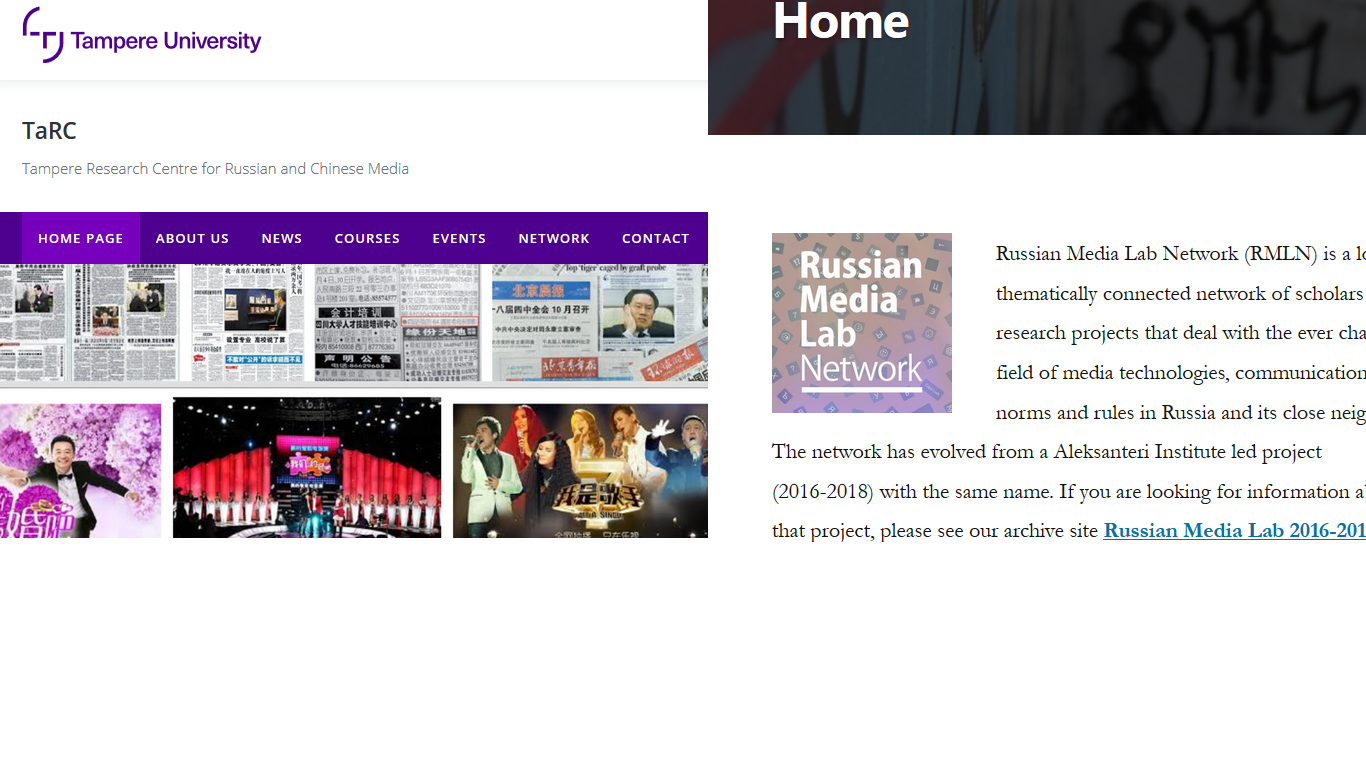The fourth season of TaRC and the Russian Media Lab’s (University of Helsinki) co-operative initiative, Online Talks on Russian Media, is upon us!
The idea of the initiative is simple. Once a month, scholars doing research on Russian media – media understood here in a broad sense – present their upcoming, ongoing, or finished projects and enlighten us about historical and recent developments. Topics, methods, and angles vary, but one thing is certain: it is never boring!
Tuesday 12 September marks the beginning of another season of great presentations, and we have a real treat for you: not just one presentation as is usually the case, but three!
The session combines research projects on exiled journalism from Syria and Russia to discuss challenges and resilience of displaced media and to find approaches to scholarship on exiled journalism as a worldwide phenomenon.
Yazan Badran from Vrije Universiteit Brussel will present his research project Precarious newsroom: Dynamics of precarity and agency in Syrian exiled media in Turkey. In it, he addresses precarisation of journalistic work of media practitioners whose professional and personal lifeworlds are underpinned by multiple layers of precarity.
Jenny Wiik and Elena Johansson from Gothenburg University will talk on Russian journalists in exile: rethinking of professional identity. They ask how exile affects the professional identity of Russian journalists, and how they navigate the challenges associated with upholding their journalistic values and credibility.
Finally, Katja Lehtisaari from Tampere University will share some tentative results of her interviews with donor organisations to explore Resilient model(s) for independent media in exile in order to understand the impact of financing models on journalistic autonomy and the agenda-setting of the exilic media outlets.
Speakers’ bios:
Yazan Badran is Visiting Professor at the Department of Communication Sciences and Postdoctoral Fellow of the Research Foundation—Flanders (FWO) at the Echo and imec‐SMIT research centers at the Vrije Universiteit Brussel, Belgium. He was a PhD fellow of the FWO (2016-2020). His research interests lie at the intersection of new journalism and political activism and the journalistic practices of emerging media organizations in the post‐2011 MENA region.
Elena Johansson is Lecturer in Media and Communication Studies at the University of Gothenburg. She was Researcher at the School of Social Sciences at Södertörn University until 2017. Her research focuses on political communication, professional journalistic cultures, and social media.
Jenny Wiik is Associate Professor in Media and Communication studies at the University of Gothenburg and Lindholmen Science Park. Currently, she runs the research project The Automation of Journalism, financed by the Riksbank’s Jubilee Fund, as well as the project Journalism in Exile, funded by the Swedish Institute. Jenny has had various management assignments within the academy and, among other things, developed the international master’s program MIJ, Master’s program in Investigative Journalism, at the University of Gothenburg.
Katja Lehtisaari is Senior Lecturer in Journalism at Tampere University and Adjunct Professor (Title of Docent) at the University of Helsinki. She is Head of the Tampere Research Center for Russian and Chinese Media (TaRC) as well as Work Package Leader in the consortium Democratic Epistemic Capacity in the Age of Algorithms (DECA, 2023-), funded by the Strategic Research Council at the Academy of Finland. Her research topics vary from changing media structures and journalism to media business and media policy, often in an international, comparative setting.
These Online Talks will be held on Zoom on Tuesday 12 September, 12:00–13:30 (Helsinki time, GMT+3). The discussion will be moderated by Olga Dovbysh (University of Helsinki). If you wish to join the event, please register here.

